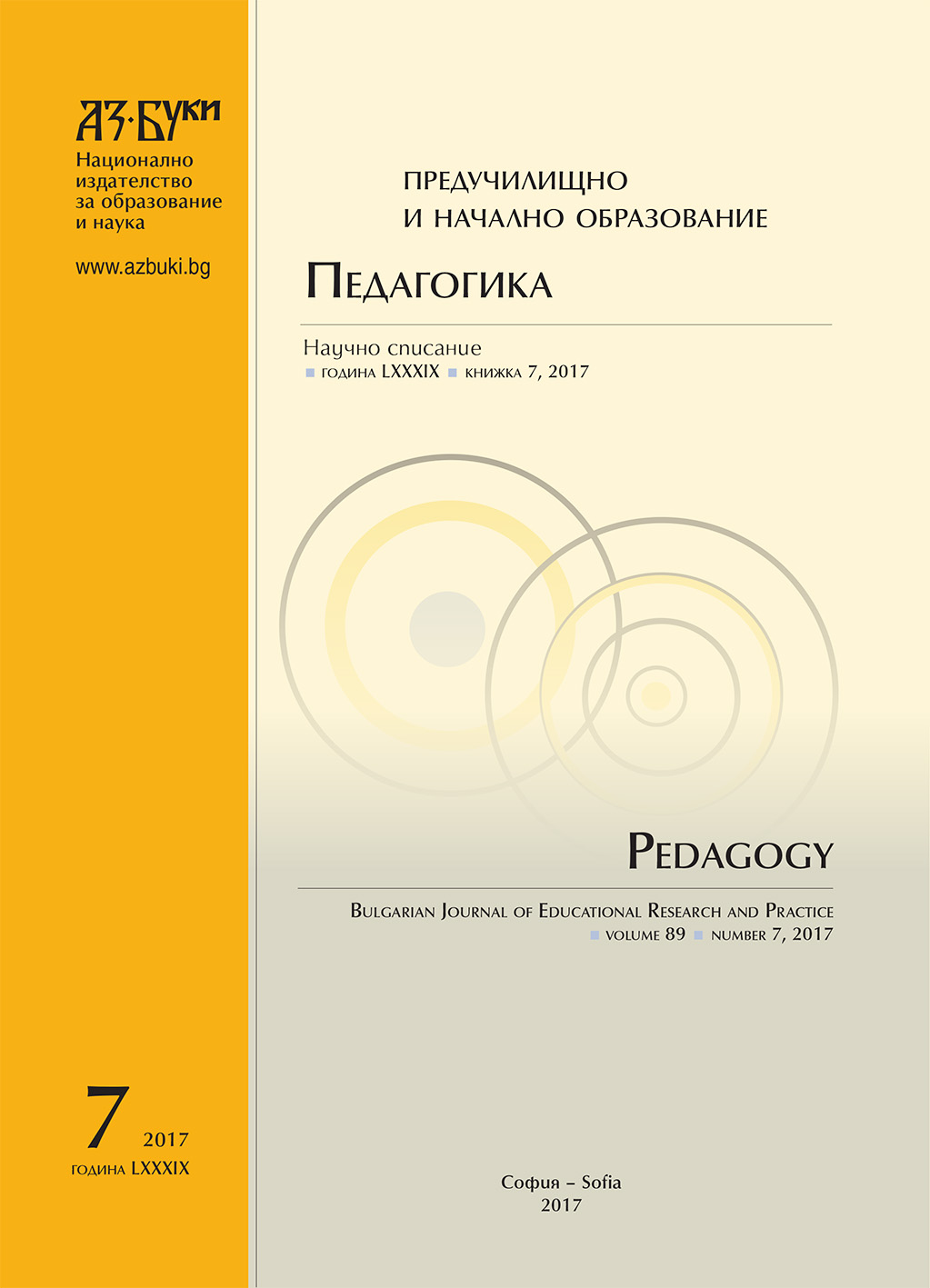
We kindly inform you that, as long as the subject affiliation of our 300.000+ articles is in progress, you might get unsufficient or no results on your third level or second level search. In this case, please broaden your search criteria.

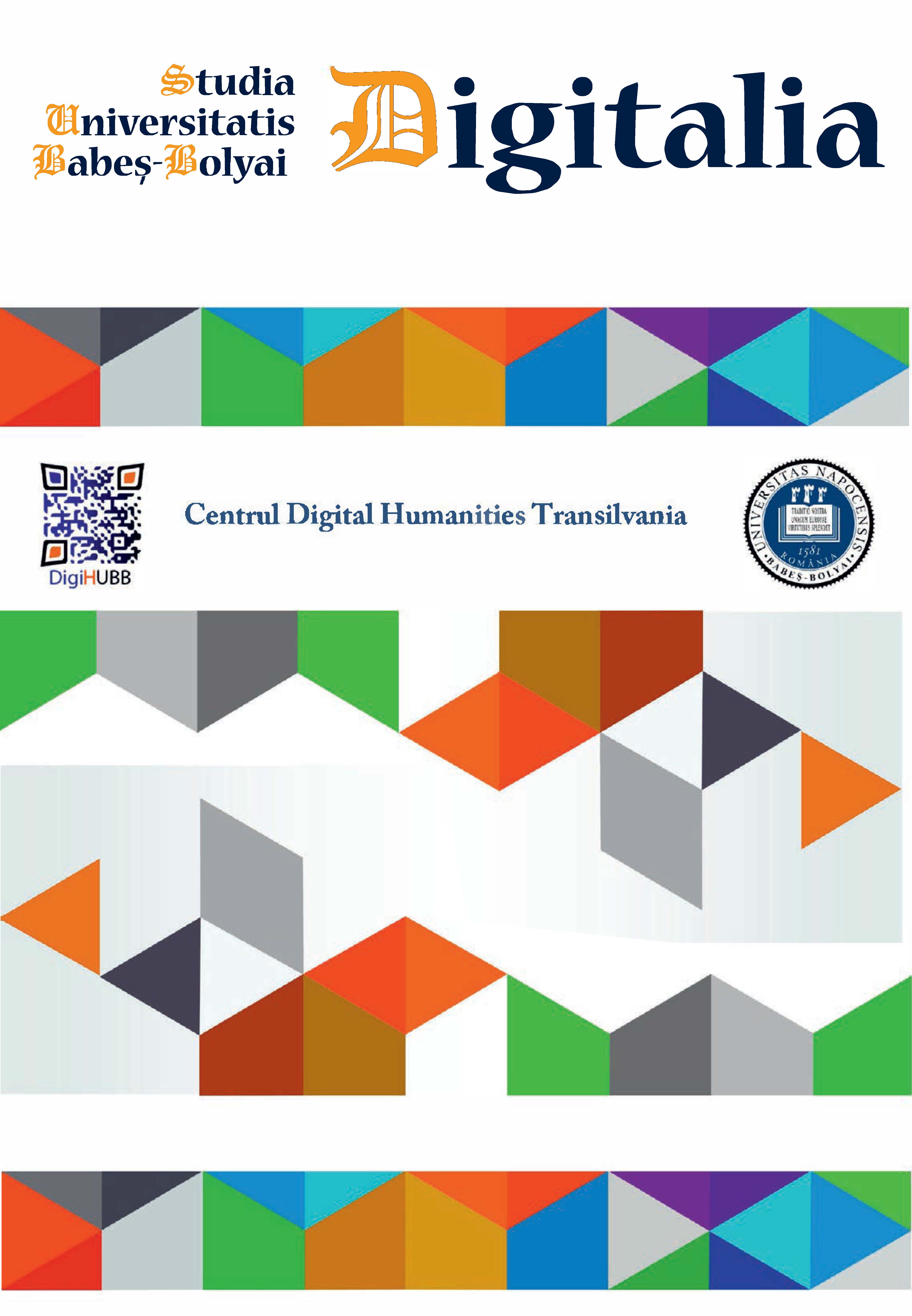
By examining the case of the French translation of the expression “digital humanities” (DH), this article argues that cultural diversity and multilingualism could be fostered in digital culture. If other languages have been invited and forced to welcome this English phrase, its translations have to be studied since they could potentially have strong epistemological backwash-effects on it. Through an historical etymological inquiry, it can be demonstrated that the use of the outmoded French word humanités is the most significant element in the two French expressions humanités numériques or humanités digitales. This single word opens up a specific space for humanist approaches within the open-ended digital approaches. On this base, the encounter between Humanities and hard sciences can be reconsidered, as it happens already in two examples of new DH masters in French-speaking countries.
More...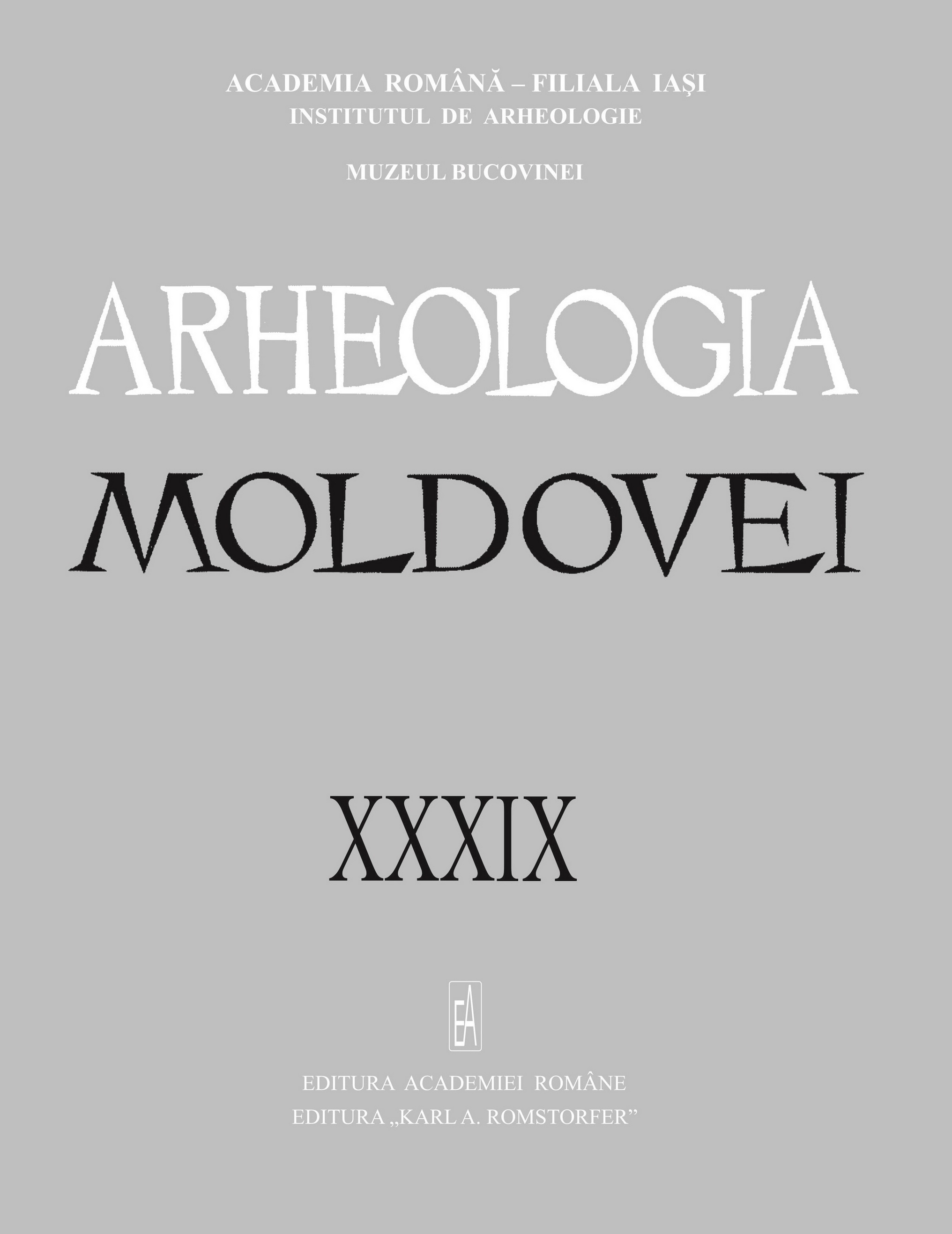
One can rarely find a series of cognates as significant – for both the post-ancient history of Southeast-Central Europe and for the Old Germanic domain – as the Romanian lexical family that includes ban ‘feudal title of nobility’ and ban ‘coin, money’. It is rather surprising that no one has decisively propounded Old Germanic origins for those Romanian words as well as for their obvious relatives in neighbouring languages. Such a situation is most probably due to the fact that some earlier (Avar-Turkic-Hungarian) etymological explanations regarding the ban family came to be considered as definitive solutions, so they became a kind of “etymological axioms” transmitted from author to author up until the present day. The main point of this study is to demonstrate that the Romanian lexical family represented by terms such as ban, bănat, băni, bănui and bântui (plus many significant derivatives) are far from being just borrowings from the languages of today’s neighbours of the Romanians. In their earliest recorded meanings, the Romanian words under discussion show surprising unity, since they all reflect a proto-feudal juridical-administrative system that can be clarified only by reference to the original semantic sphere of Germanic words such as German Bann, Swedish bann or English ban. The general conclusion of this study (divided into two parts, to be published in two consecutive issues of Arheologia Moldovei) is that Romanian, as continuant of the Vulgar Latin spoken in Southeast Europe, preserved a lexical family based on Old Germanic loans with meanings that look even more archaic than the ones of the ban family (of Frankish origin) which survived in the French language.
More...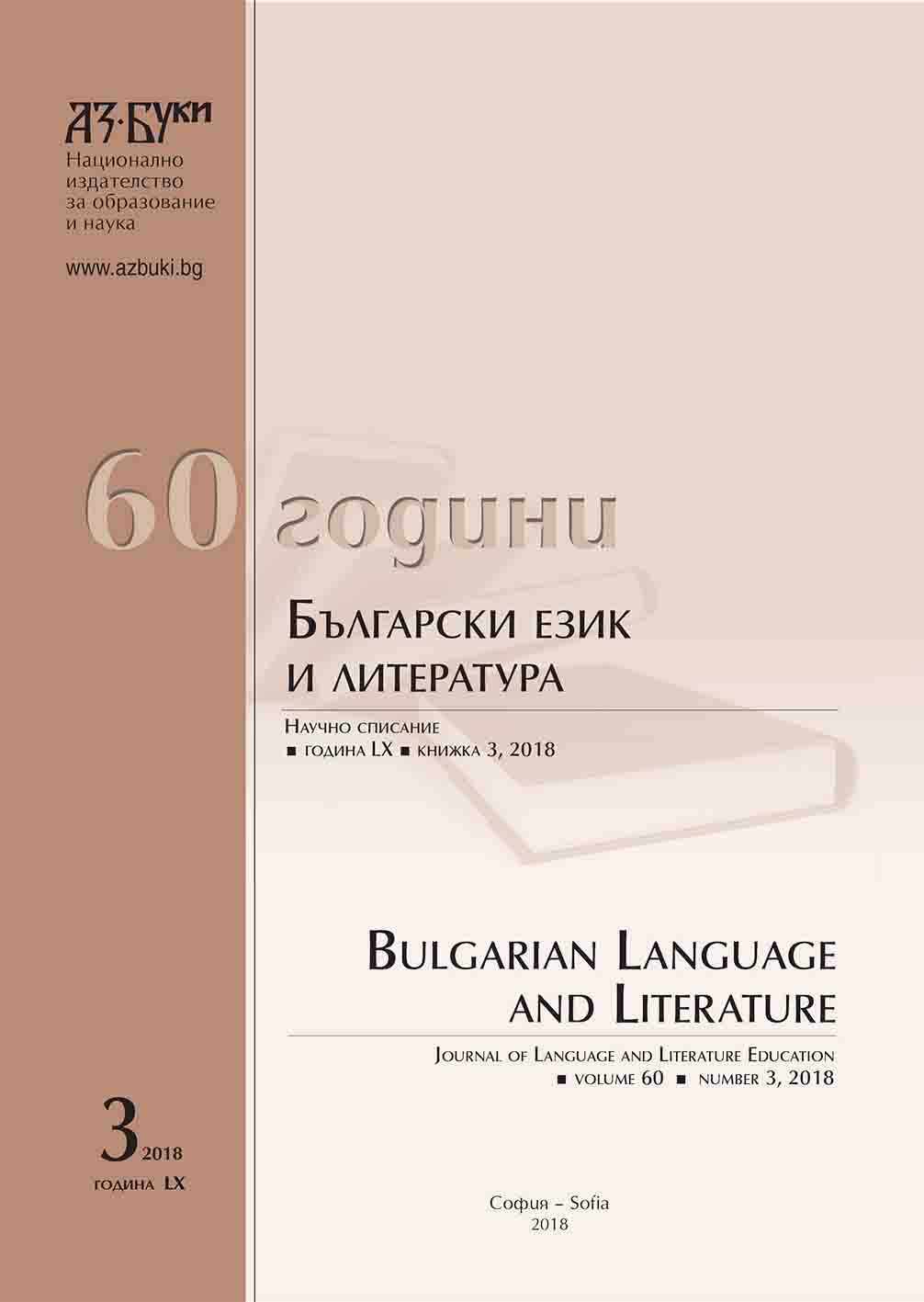
The article reflects on the Swiss scientist translations’ influence on Bulgarian humanities. A short flashback revealing some Bulgarian writers’ Jungian appreciation of literature is constructed. Outlined is doctor Krustev – Karl Jung relation through Wundt and German philosophical, aesthetical and psychological school of the second half of the XIX th century. The text mentions the neglect of psychoanalytical methodology in Bulgarian literature and humanities, started by the “Misal” journal founder. Attention is payed to Yavorov’s poem “Nosht” (Night) as a productive object of psychoanalytical research. Mentioned are also some Bulgarian authors form different generations to whose works this methodology proves to be very productive.
More...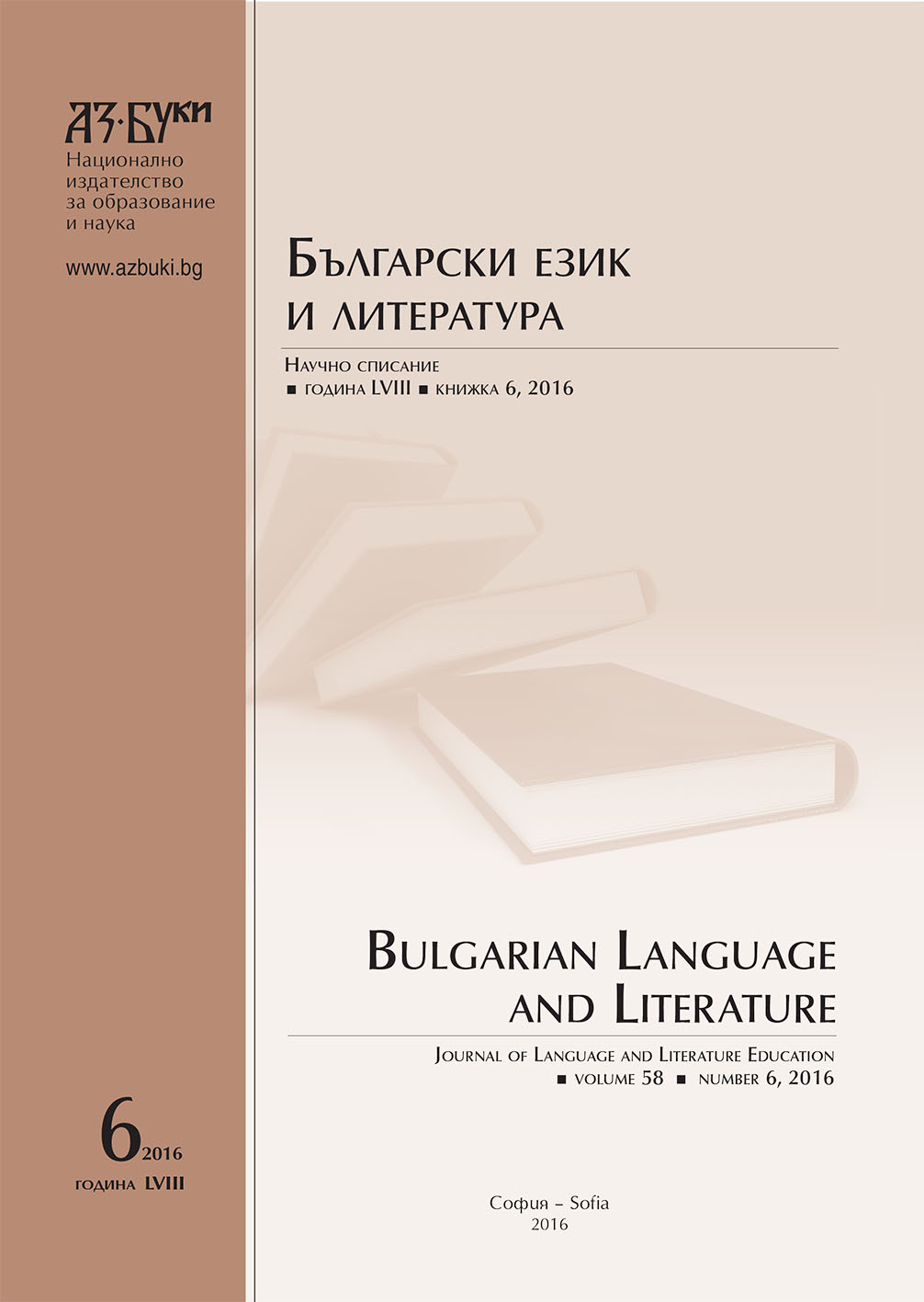
The text examines the concept of interactive methods linking them in the context of education in Bulgarian language and literature at the lower secondary level (V - VII grade). The suggested working models show how effective is the interaction between the participants in educational communication, which apply different pedagogical practices.
More...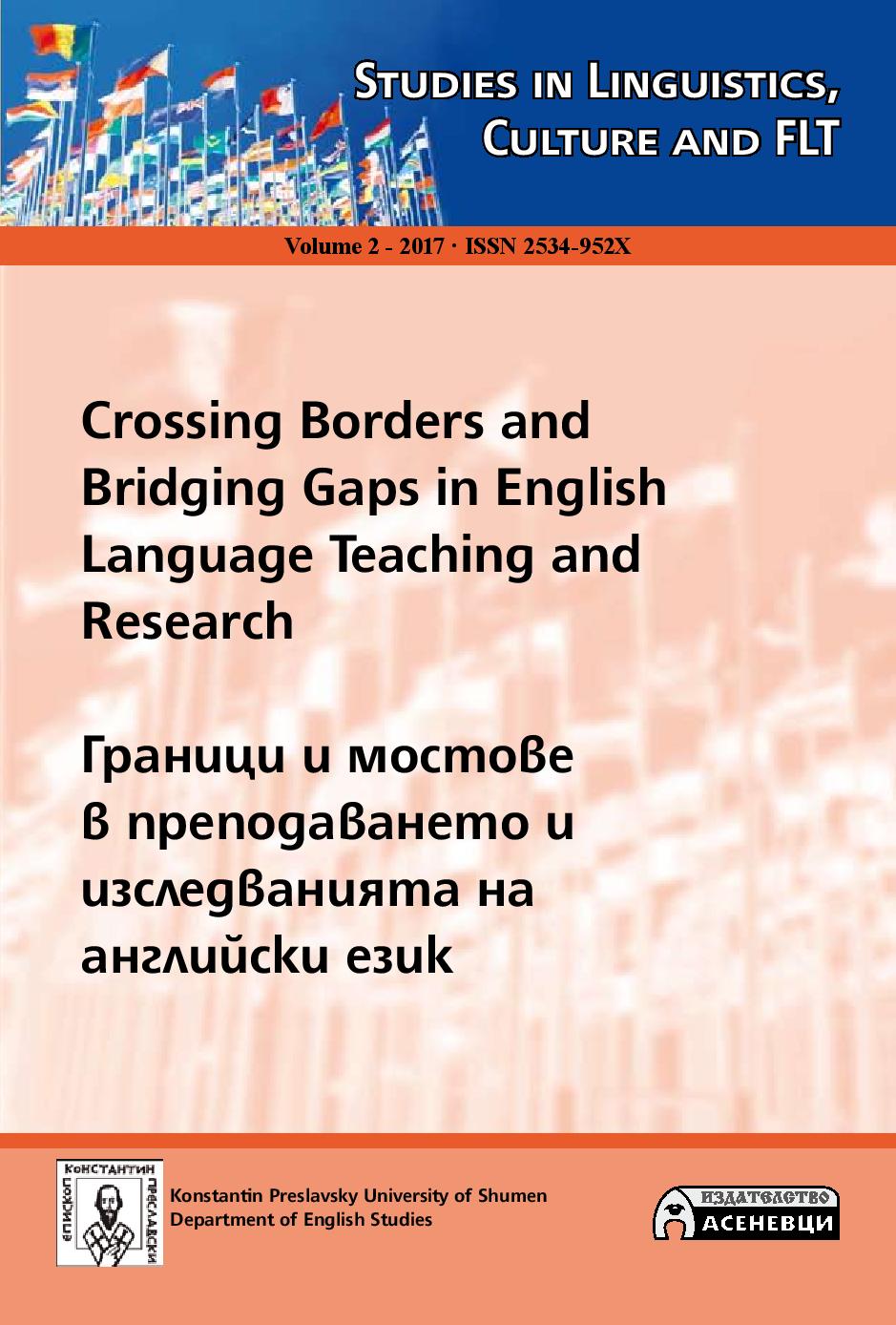
The paper deals with metaphoric transfer of knowledge in English advertising discourse based on two- and cross-domain mappings referring to cultural conceptualizations of the world. On the one hand, text producers’ awareness of social events, as well as of people’s experiences and practices helps them in the construction of advertisements in the most intriguing and sensational way. On the other hand, text receivers are provoked and tempted by the ads deconstruction, though in some cases their unawareness of what is happening or has happened around us or in the world at large may block or hinder comprehension and thus lead to either misunderstanding of the message and their ignorance of it or to their complete indifference to it. The paper deals with all of the above mentioned issues supported by examples of English language ads and commercials. It shows in what ways multimodality related to the use of verbal and non-verbal signs works in them. The results prove the fact that the use of multimodal metaphors, especially in the non-verbal component, is supposed to trigger more emotions and feelings than the mere representation of the advertised items.
More...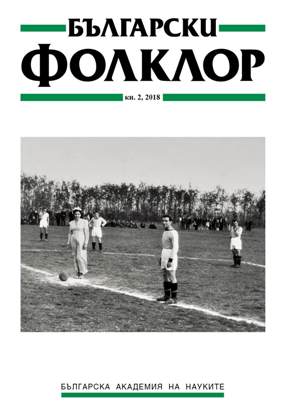
The article studies the visual and verbal communication and their interaction in political cartoons. It analyses the indispensable means of expression the cartoonist uses to convey his/her message such as visual metaphors and metonymies. Visual metaphors and metonymies are analysed from the point of view of Conceptual Metaphor and Metonymy Theory. The author studies the implications arising from the interaction between image, title and text (for the cases when there is title and/or text), as well as the metaphors and implications beyond image, title and text. The main theoretical construct used is the notion of incongruity from the Incongruity Theory of Humour that is extended to verbal and visual metaphor. The notion Logical Mechanism from the General Theory of Verbal Humour is applied in the analysis to (partially) resolve the incongruity/ies. Political cartoons are compared to a joke, a fundamental unit of humour in psychology, cultural anthropology, linguistics, philosophy and sociology. Pictorial representations and text function as contextualization cues to get to the probable cartoonist’s message. The interpretation of political cartoons is open-ended and indeterminate and is dependent on the viewer’s/reader’s general knowledge and his/her familiarity with the genre.
More...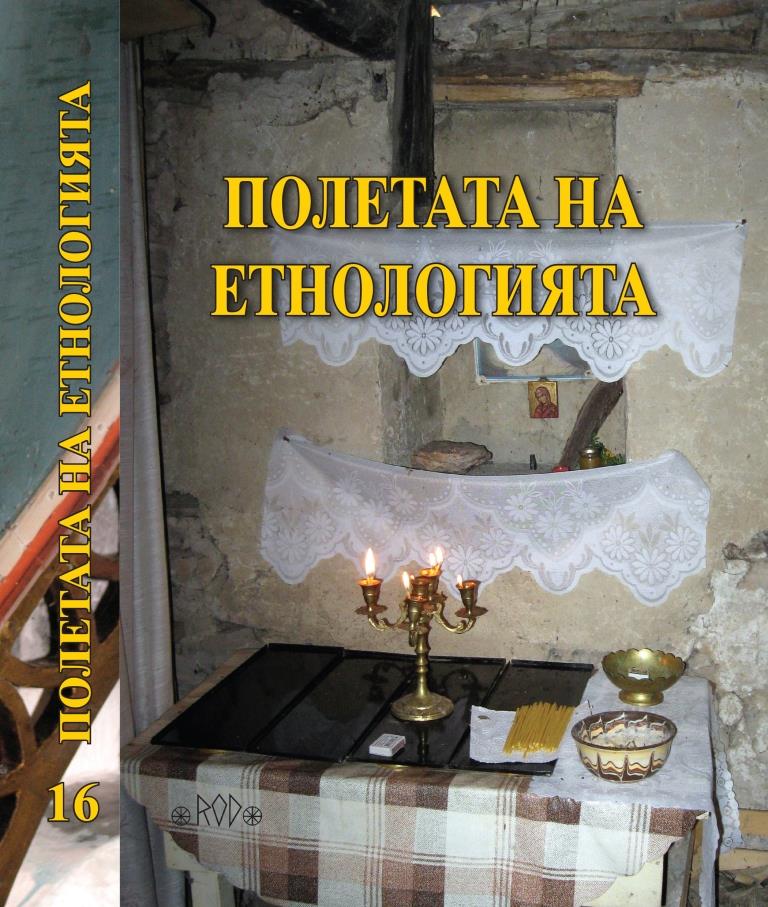
Today within the Northern Greece still can be heard an old Rhodopy dialect, which is not spoken long ago, even in Bulgaria. Bearers of this language are more than 11 500 inhabitants. The area is known as Western Thrace, West Rhodopes mountain areas of Northern Greece or increasingly popular name Pomakohoriya – i.e. Pomak villages (translated from Greek). The “minority”, as it is called, according to official government terminology, speaks “pomatski”.Common practice today is even separate neighborhoods to be called by the names of their inhabitants. These names are coming often from family names, kinship or paternal (patronims), and differ from the official names and surnames, used from the subjects of the Hellenic Republic.134 Back in time, little more than fifty years, the names were given and chosen in several ways. The most common was the name of grandparents or other close relative of the child – “to do not forget the name” or with the following custom: “Take five-six wooden spoons and assign a name to each, put them in the river and which spoon overtake, give this name of the child. Few days after birth or on the fortieth day, the child is brought to the imam who read him prayer and whispers in his ear three times the name that will bear”.Old, traditional names are only five or six and to distinguish individuals, are used illustrative or household names that often are coming from the kinship name and much less from the official family name. These names are most commonly associated with the name of the father (i.e. middle name) or the mother, the name of the village or the craft of the kinship or the man, so that it cannot be confused easily.For various reasons, mostly health related, the name of the newborn can be changed, which believes to lead the child to better luck and will help his normal growth.Concerning middle (second) names, can be noted that in Pomako¬horiya is observed similar to that process, described by Olga Zirojevic in “Islamization of South Slavic world” of the Balkans. In Bosnia and Herzegovina is not a rare case only the personal name of the newly con¬verted to be Muslim and father’s name to remain the old, like here com¬monly used patronim as a sign of belonging: Ahmet Yusufov – Ahmet, the son of Yusuf, or Djemile Raffia (Rafin) – Djemile, the daughter of Rafia, Mehmetali Hoxha – Mehmetli, the son of the imam (hoxha).Here is how in the real world, we found a different, parallel universe, which has its own laws and rules.
More...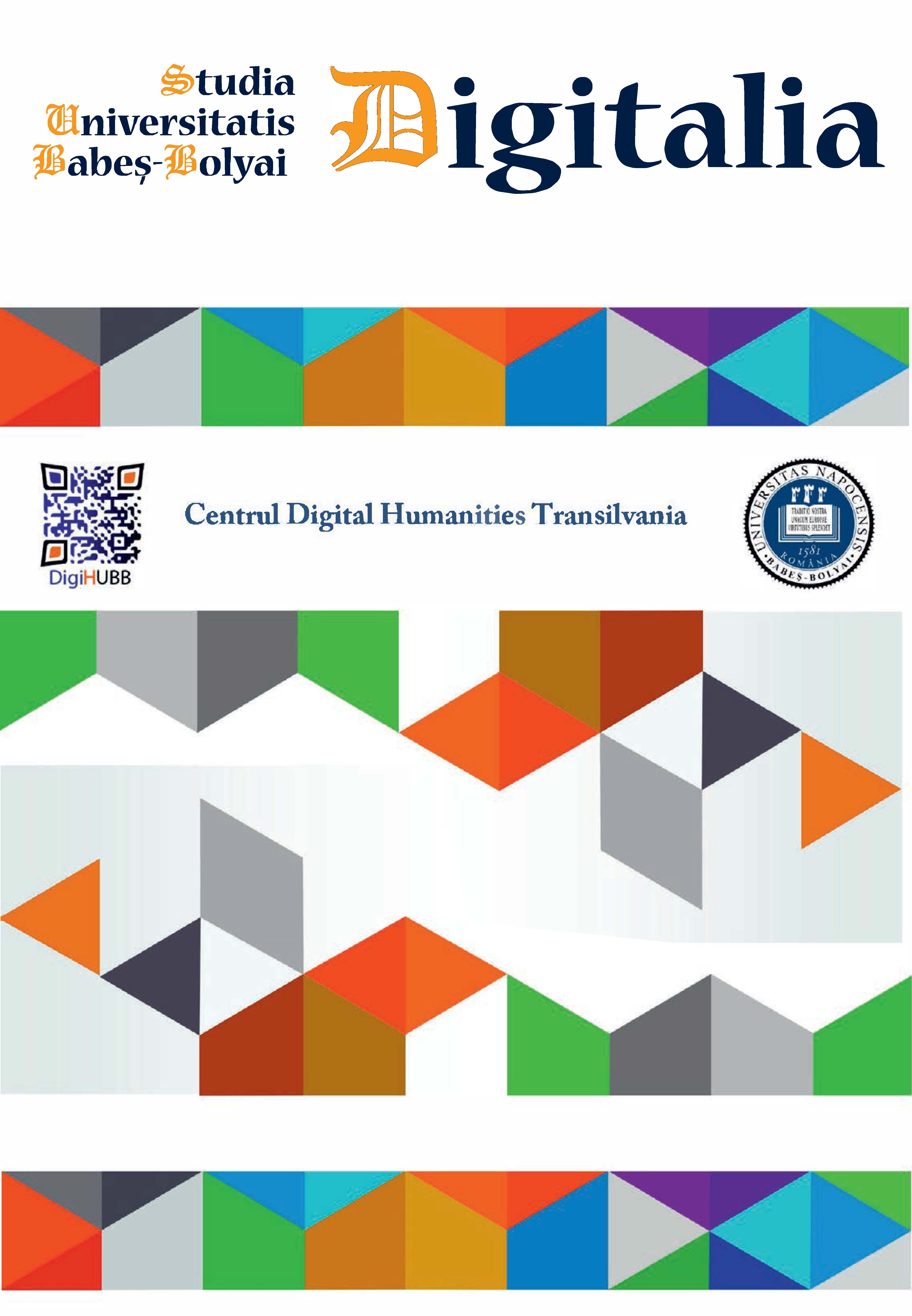
“Humanities”, “Commerce” and “Monographs” are three terms that have been existed for a very long time. Nowadays, they are often conceptualized in a digital way that implies a radical paradigm shift in their main features. The aim of this article is to investigate the possibility of interaction between digital humanities and e-commerce, through their application to the genre of digital monographs. By “digital monograph” we mean born-digital, long-form, media-rich, scholarly publication, that rejects the print-based form (and so the e-book format) and takes advantage of the methods and tools of digital humanities. In particular, digital monographs re-think the traditional textuality of essays; textuality becomes “liquid” and multimodal. Because of publishing, obsolescence, discoverability, use, evaluation, etc. these products must be hosted on a publishing platform that is suitable for the scholarly needs both of the authors and of the final users. The link with e-commerce arises from the need of the publishers to sell the products of research, especially in countries where the academic publishing system is not based on University Presses but on commercial ones. This study wants to reflect on how the economic logic of profit and cultural logic can coexist in a digital publishing platform: is it possible to overcome the “monograph crisis”? What are the major problems that arise when selling an academic monograph? What business models could be the most suitable for this kind of publication? In what way can a publisher improve customer loyalty? The thesis of this article is that digital enhancement of the monograph plays a key role in its sale. The opportunities offered by the digital humanities, in fact, are not only a matter of format; they are, indeed, what makes the substantial difference in the quality of scientific communication. They enable the authors and the publishers to offer the consumer something that neither the print version, nor the e-book can do. First of all, a digital monograph allows a direct link with primary and secondary sources; secondly, it supports different layers of use and wider accessibility. Moreover, it gives both the author and the reader, the possibility to better represent and understand the complexity of the research and of the methods and tools that are used. On the other hand, this article considers the infrastructure for producing and hosting these products and its importance in the development of a cultural community based on scholarly value creation. These are some of the issues that a digital publishing project needs to consider in order to sell its products and become sustainable. After discussing these questions, this article postulates a possible functioning business model of subscription based on the concept of cultural engagement. The conclusions concern the requirement of an editorial workflow that links together all the phases of production, from the author’s composition to the reader’s purchase.
More...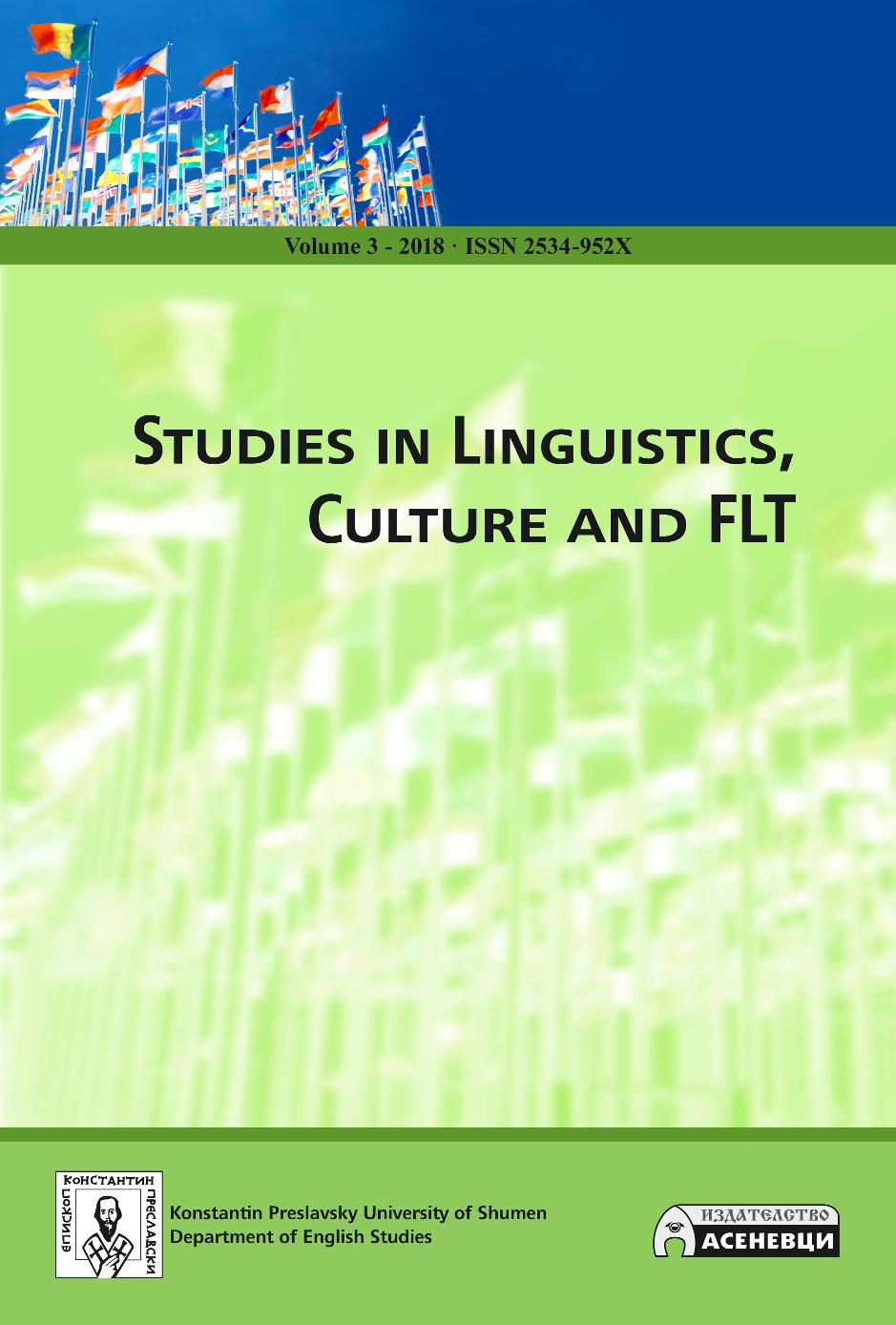
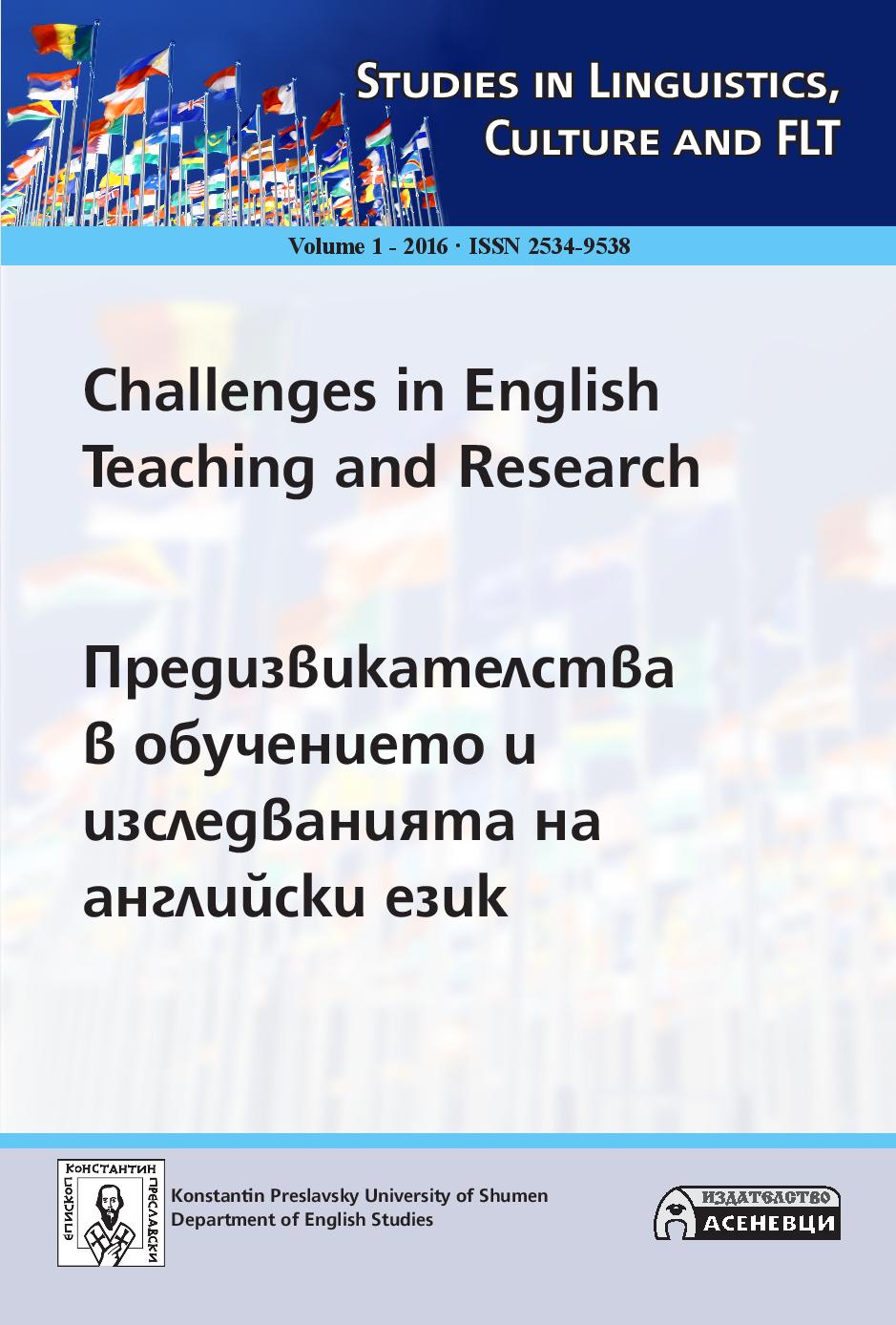
The preface provides an overview of the main topics discussed in the volume dedicated to the Challenges in English teaching and research.
More...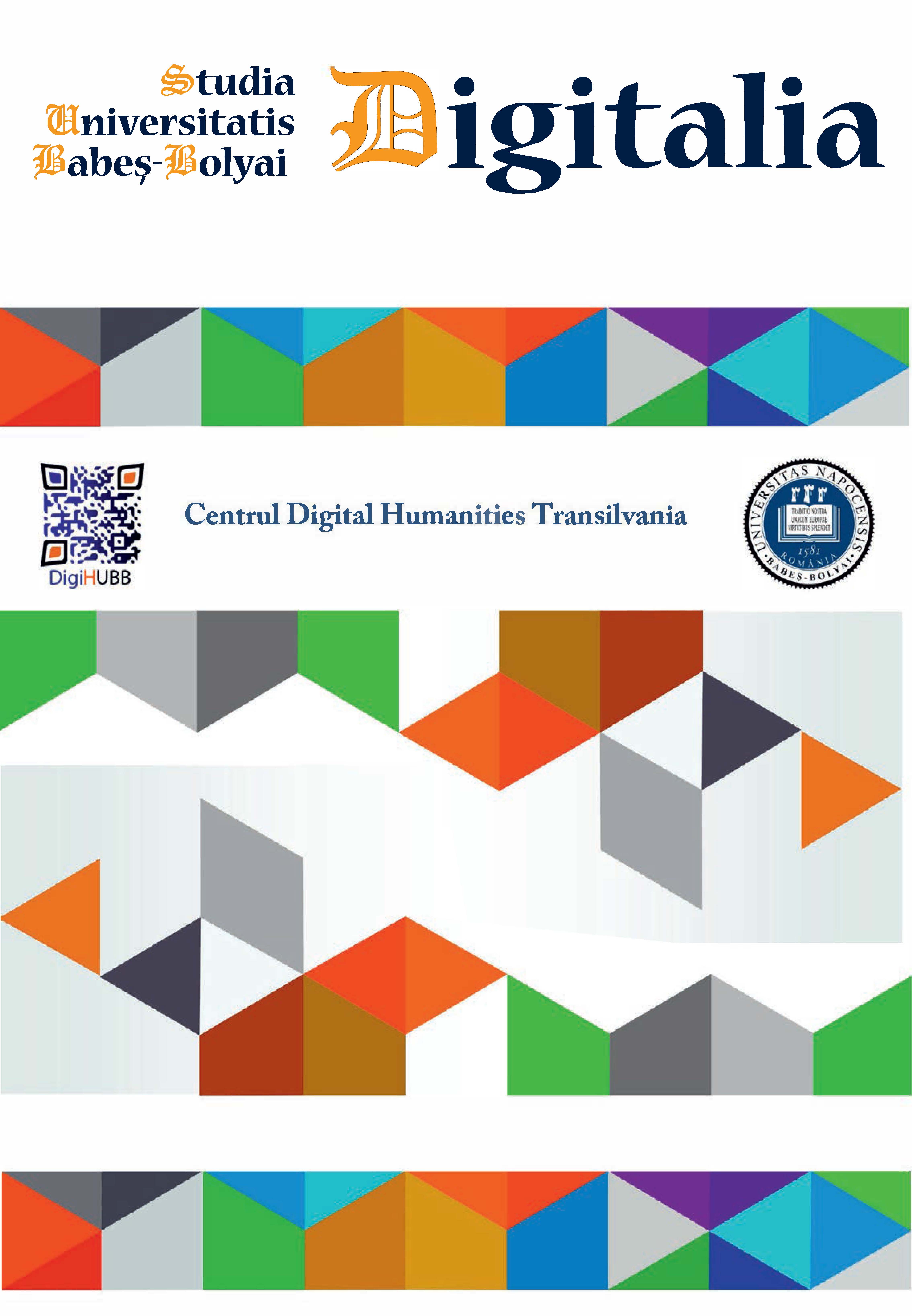
This volume reunites several papers from the Digital Classics, a relative narrow field of Digital Humanities. Some of the chapters were among papers presented at seminars in London and Berlin, however most of them were especially drafted for the present volume. The volume targets scholars in Classics, Archaeology and History, but the editors believe it will also be accessible to teachers and students, as well as non-academics with an interest in the topic.
More...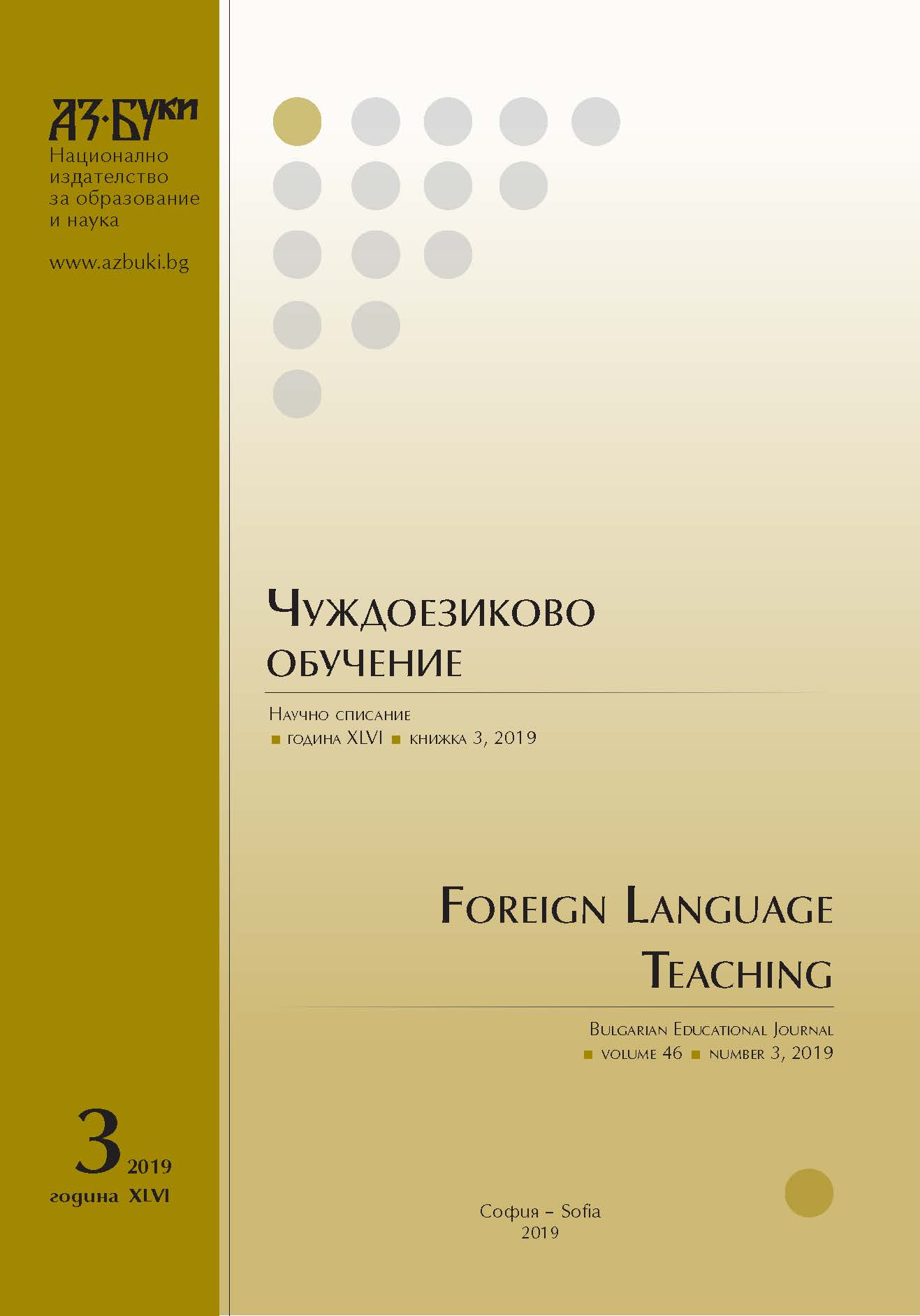
The intrusion of Turkic words into different languages is long and complex process that requires serious and in-depth analysis of the extracted material. The analysis of common borrowings in two languages from different groups (Bulgarian and French) requires a complex approach based on the comparative empruntology between lexical elements of agglutinating language, passed into two Indo-European languages, representatives of the Slavic and Romance groups. The aim of the study is to track the phonetic and grammatical changes that occurred during the penetration of Turkic words in Bulgarian and French and outline the thematic fields and the changes in their semantics
More...
This paper examines improving sociolinguistic competence as a basic element of communicative competence in Second Language Acquisition. The study presents and analyzes data from research of “frequency” and “logic” properties of comparisons in Bulgarian language learning as foreign for medical students in blended learning environment with using literary texts. Methods of Scaling were used to carry out the study. The results and their analysis are relevant to establishing the didactic potential of learning in EasyClass online platform. Emphasis is placed on the role in mediating of literary text on the understanding of the specific rhetorical functions of comparisons and their extension into a middle linguistic register relevant to the purpose of patient-centered communication.
More...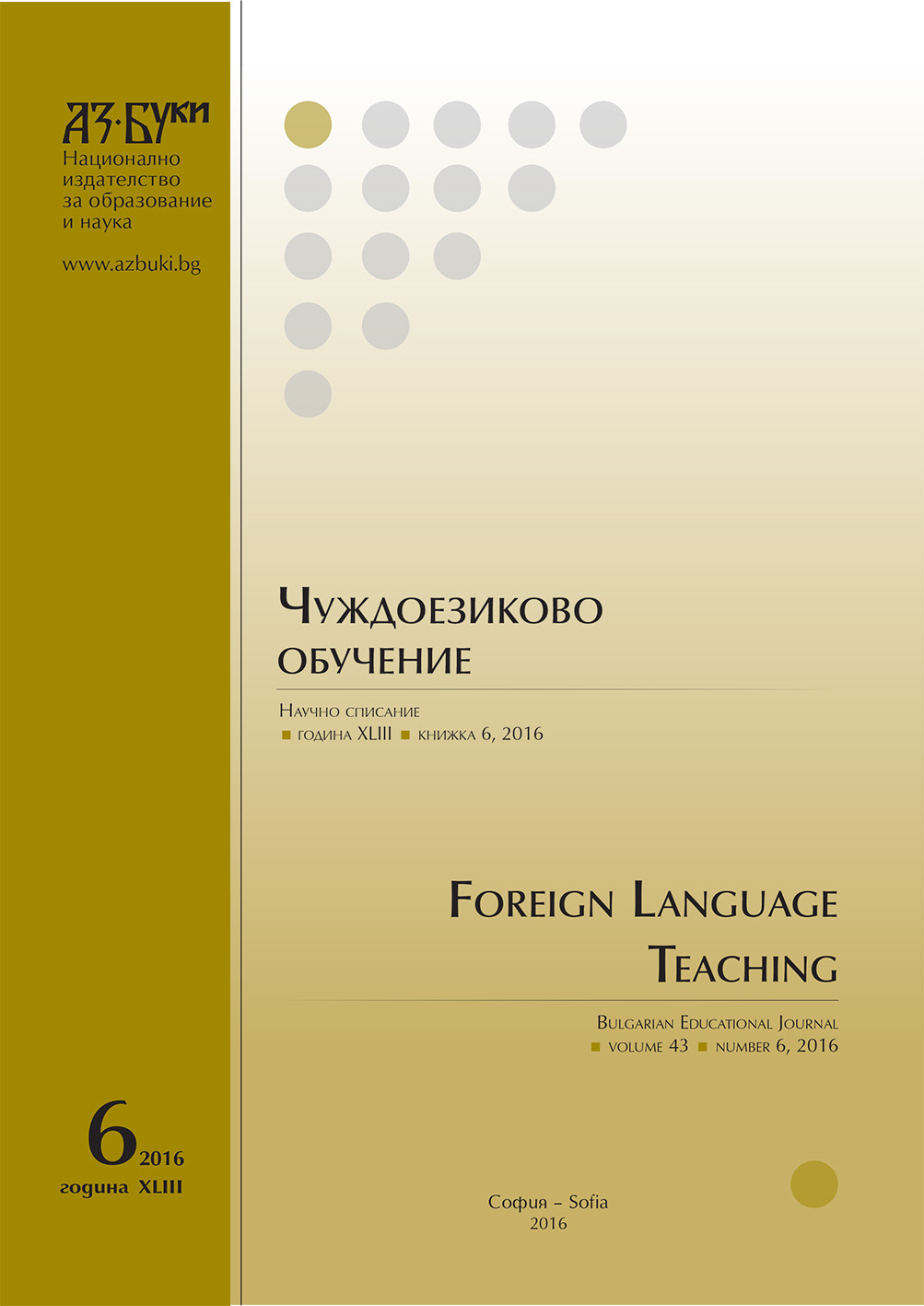
The current article focuses on two main tasks: linguistic – to draw out the basic principles of rendering Hindi words into Bulgarian language, as well as culturological – to show the importance of a translator’s mission and his role as an intercultural mediator. Apart from the phonetic and phonological aspect of the matter, the article refers also to the clearly semantic point, related to the way of incorporating words and terms in a text’s integrity, no matter if it is a translation or any written work, related to Indian culture. The survey is based on several publications of the department of Indology (Indian Studies) in Bulgaria and on the author’s book „Pen, Chocolate And Two Rupees“ (in co-authorship with Nikolay Yankov). The method is holistic and attempts to offer a comprehensive insight into the connection between languages while correlating it with the one between cultures, placing the translator’s personality in the centre of this relation.
More...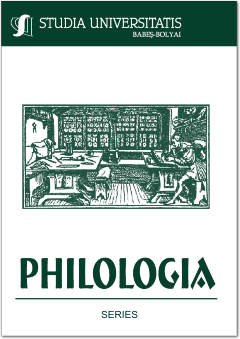
Goethe and his Followers: Weltliteratur and its Afterlives. Goethe´s Weltliteratur, which recalls cosmopolitan ideas of the 18th century, drew attention to literature´s multicultural role in the international exchange and networks. His ideas were developed by subsequent scholars who reflected upon the importance of translations, literatures belonging to small nations, and putting in contact local and global aspects in their discussions about literary studies. Hugo Meltzl emphasized multilingualism for development of literary studies; Georg Brandes drew attention to the importance of small literatures; and Fritz Strich proclaimed that world literature should challenge the Eurocentric notion of literary studies.
More...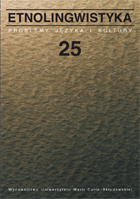
An observation is made that the linguistic worldview is grounded in values, which play a decisive role in the shaping of a given community’s (collective) identity. Therefore, it is postulated that the folk Slavic axiological system (the world of values cherished in folk Slavic traditions) be investigated. The project called (ETHNO)EUROJOS – parallel to EUROJOS, an international research programme headed by Jerzy Bartmiński and based on standard language varieties and “national” traditions – would thus be concerned with the values common to Slavic folk cultures. It has been shown that Slavic nations are much closer to one another at the level of folk cultures than at the level of national, elite-shaped cultures. A survey among distinguished researchers in various Slavic traditions reveals that the values important for Slavs are: health and life, family and kinship, home, land, work and diligence, love, beauty, happiness, wisdom, frankness, integrity, faithfulness, justice, freedom, honour, faith (religion) and God. A description of these values could follow the methodological assumptions of the Lublin Dictionary of Folk Stereotypes and Symbols.
More...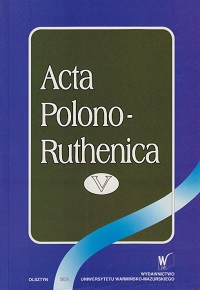
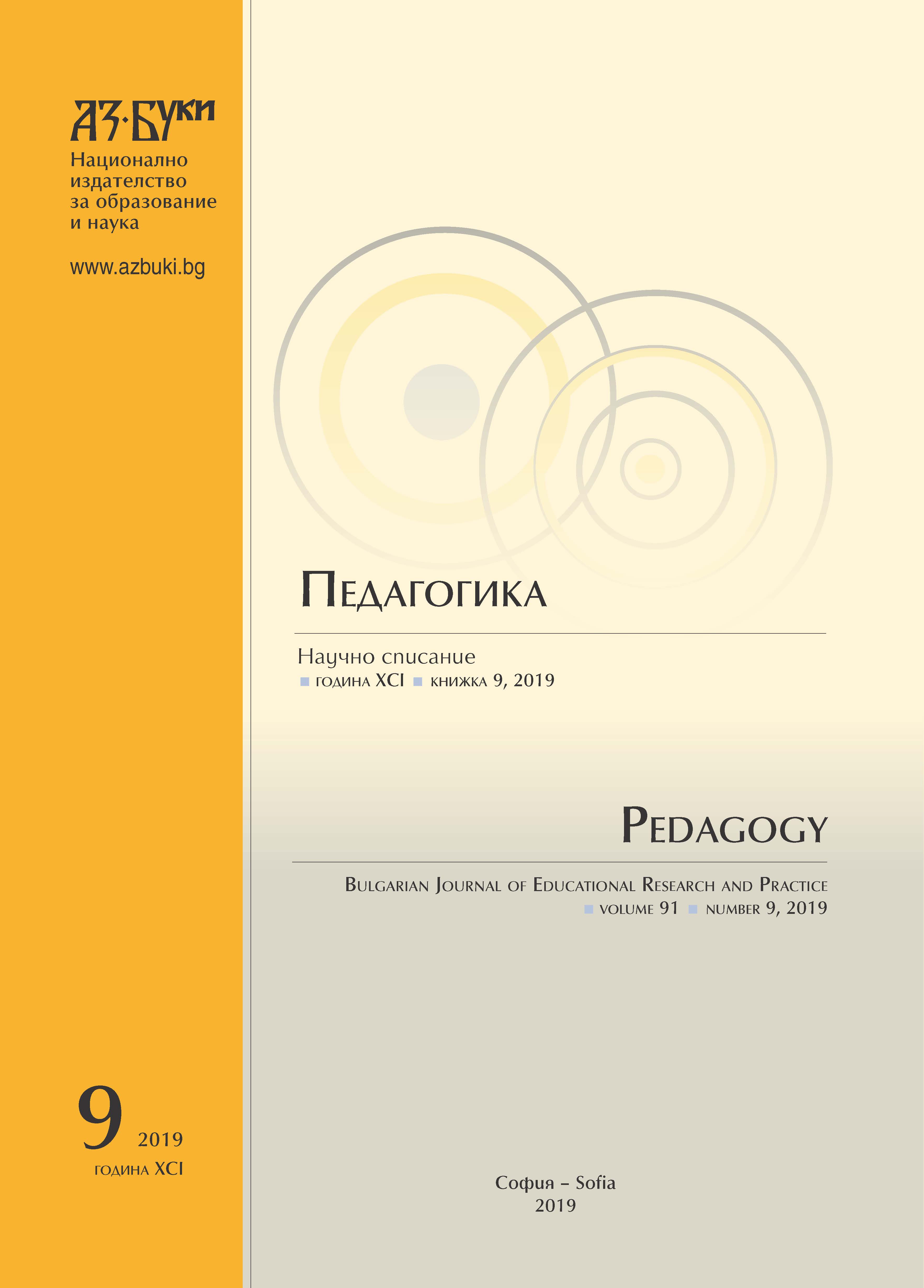
The idea of learning to read for social purposes from the first stage of school is maintained in the article in exact agreement with contemporary educational policies at European and national level. The importance of language literacy in the modern civilization of knowledge and the phenomenon of reading as a base of acquiring language literacy are discussed. On this background the problems of beginning reading instructions in Bulgarian and in English are interpreted and a classification of literacy technologies for teaching primary students that is based on the specific character of the corresponding writing system is presented. Theoretical statements are illustrated with some technological instructions for “entering” reading in Bulgarian and in English.
More...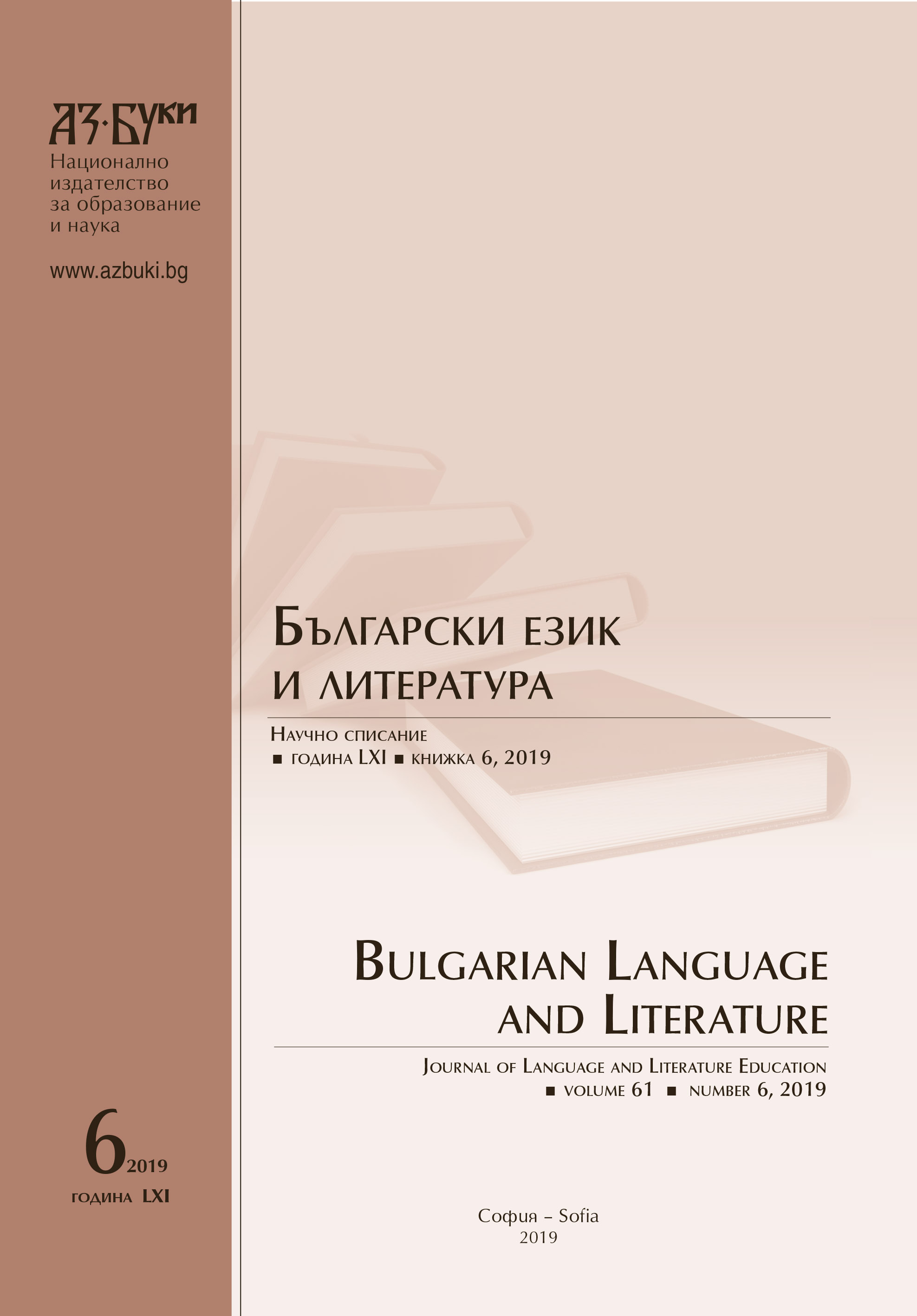
The article aims at presenting, in terms of comparison, the ways of how the morphological category mood of the verb are developed in the actual textbooks, according to the new curriculum for the 7th grade in the general secondary education course of the Bulgarian secondary school. The observations lay on the base of eight textbooks with different authoring teams. Several key criteria have been selected, as number of lesson articles, terminology used, grammatical content, practical skills and didactic effect. The author expresses her views based on voluntary and gratuitous work for debugging the textbooks in Bulgarian language, which contributes to the enlargement of the professional and the broader social audience with interest to the topical issues of the Bulgarian education. Specific practical examples are discussed with regard to compiling HBO (National External Assessment) tests.
More...